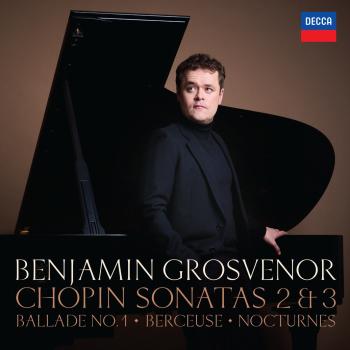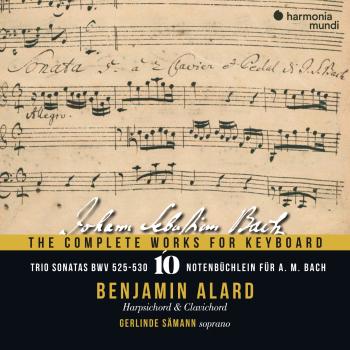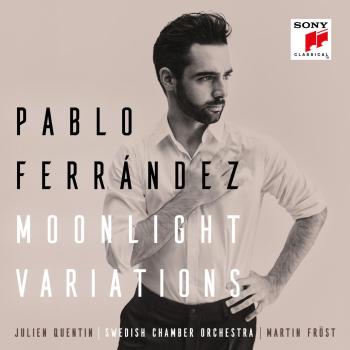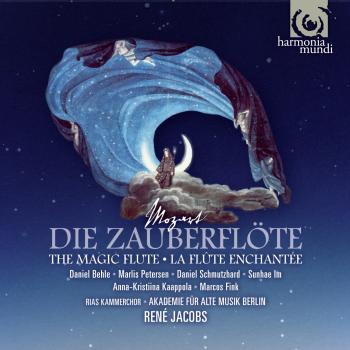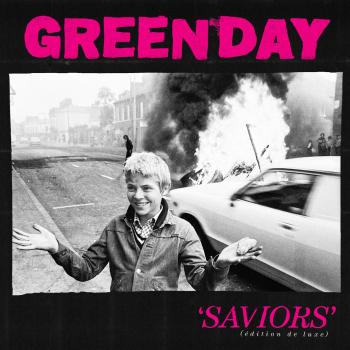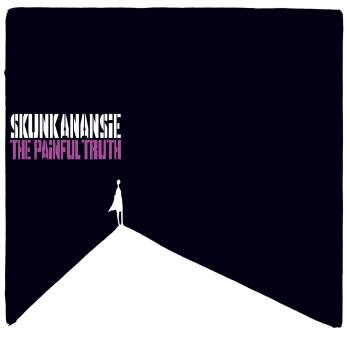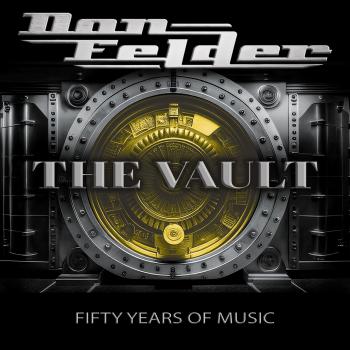
Václav Neumann conducts Dvořák & Smetana Czech Philharmonic Orchestra & Václav Neumann
Album info
Album-Release:
2024
HRA-Release:
06.09.2024
Label: audite Musikproduktion
Genre: Classical
Subgenre: Orchestral
Artist: Czech Philharmonic Orchestra & Václav Neumann
Composer: Antonin Dvorak (1841-1904), Bedrich Smetana (1824-1884)
Album including Album cover Booklet (PDF)
- Antonín Dvořák (1841 - 1904): Symphony No. 8 in G Major, Op. 88, B. 163:
- 1 Dvořák: Symphony No. 8 in G Major, Op. 88, B. 163: I. Allegro con Brio 09:46
- 2 Dvořák: Symphony No. 8 in G Major, Op. 88, B. 163: II. Adagio 10:11
- 3 Dvořák: Symphony No. 8 in G Major, Op. 88, B. 163: III. Allegretto grazioso - Coda. Molto Vivace 06:22
- 4 Dvořák: Symphony No. 8 in G Major, Op. 88, B. 163: IV. Allegro ma non Troppo 10:35
- The Wild Dove, Op. 110, B. 198:
- 5 Dvořák: The Wild Dove, Op. 110, B. 198: Andante, marica funebre - Allegro 07:14
- 6 Dvořák: The Wild Dove, Op. 110, B. 198: Molto vivace - Allegretto grazioso - Andante - Andante, Tempo I 11:25
- Bedřich Smetana (1824 - 1884): Libuše, T. 107, JB 1:102:
- 7 Smetana: Libuše, T. 107, JB 1:102: Prelude 08:49
Info for Václav Neumann conducts Dvořák & Smetana
Václav Neumann was one of the most distinguished conductors of the so-called Eastern Bloc. The long-serving chief conductor of the legendary Czech Philharmonic was principally regarded as an accomplished advocate of the music of his homeland, which he interpreted with a strong sense of form, love of detail, and a vocal espressivo, eschewing any sentimentality. This is also evident in these live recordings made in Lucerne, now released for the first time.
Three live recordings made in Lucerne, now released for the first time, commemorate Václav Neumann, one of the most distinguished great conductors of the so-called Eastern Bloc. As chief conductor of the legendary Czech Philharmonic for many years, Neumann was principally regarded as an accomplished advocate of the music of his homeland, which he interpreted with strong sense of form, a love of detail, and a vocal espressivo, eschewing any sentimentality.
"I'm quintessentially Czech," Václav Neumann once professed - a subtle indication that, even during the politically turbulent times of the Cold War, he could not imagine any other home than Prague. His Czech identity was also an artistic trademark in the international music world, especially during his tenure as chief conductor of the Czech Philharmonic which he held from 1968 until 1990, establishing himself on countless concert tours as a cultural ambassador for his country. The impetus for his international career, however, came from the GDR, where Neumann joined Walter Felsenstein's Komische Oper in Berlin, later moving to Leipzig where he was appointed general music director and chief conductor of the Gewandhaus Orchestra - a post steeped in tradition, from which he resigned in 1968 in protest of the events of the "Prague Spring".
In the summer of 1969, the Czech Philharmonic was the first orchestra from beyond the "Iron Curtain" to perform at the Lucerne Festival - naturally under Neumann's baton. Four further guest appearances followed between 1984 and 1990, including gripping interpretations of Dvořák's Eighth Symphony, his late tone poem The Wild Dove and the prelude to Smetana's opera Libuše. Neumann never lapses into national emphasis, but instead seeks to achieve a balance between richly nuanced lines - the trained violinist and violist spoke of a "singing orchestra" - strict form and precise realisation of the musical text.
All three live recordings are first releases. The 32-page booklet in three languages contains a portrait of the conductor by Michael Struck-Schloen alongside previously unpublished photos from the festival archive.
In cooperation with audite, Lucerne Festival presents the "Historic Performances" series featuring outstanding concert recordings of artists who have shaped the festival throughout its history. The aim of this CD edition is to rediscover treasures - most of which have not been released previously - from the first six decades of the festival, which was founded in 1938 with a special gala concert conducted by Arturo Toscanini. These recordings have been made available by the archives of SRF Swiss Radio and Television, which has broadcast the Lucerne concerts from the outset. Painstakingly remastered and supplemented with photos and materials from the Lucerne Festival archive, they represent a sonic history of the festival.
Czech Philharmonic Orchestra
Václav Neumann, conductor
Václav Neumann (1920–1995)
a distinguished Czech conductor and unforgettably charismatic music director of the Czech Philharmonic Orchestra, made the highest number of discs of any artist, irrespective of profession, for Supraphon. They above all include complete sets and individual recordings of major works, with many of them having received the world’s most prestigious awards, as well as minor, generally popular pieces. The present album comprises a large selection of the recordings Václav Neumann made before he assumed the post of principal conductor of the Czech Philharmonic, with most of them possessing a great historical value. And a number of the featured recordings are appearing on CD for the very first time.
Unlike many other famed conductors, by the time he became head of the Czech Philharmonic, Neumann was already an established artist of international renown. He started his professional career as a violinist (he studied at the Prague Conservatory with Josef Micka) and concurrently took conducting lessons (from Pavel Dědeček and Metod Doležil). While still a student, he initiated the establishment of the legendary Smetana Quartet, in which he initially played first violin and later on viola. Following the end of World War II, be became a violist of the Czech Philharmonic, which from 1942 to 1948 was led by Rafael Kubelík. Neumann, however, wanted above all to be a conductor and definitely decided to pursue this path in 1947, after leaving the Smetana Quartet. A watershed in his career came in March 1948, when he had to stand in for Kubelík, who had suddenly fallen ill. In the same year, Kubelík emigrated and Neumann took over the majority of his scheduled concerts, conducting performances in Prague and other cities in Czechoslovakia. He led the Czech Philharmonic during its tour of East Germany and in 1949 conducted Smetana’s My Country at the opening concert of the Prague Spring music festival. Nevertheless, at the time he lacked sufficient experience to head as renowned an orchestra as the Czech Philharmonic and hence after a year left his post of chief conductor. From 1951 to 1954, Neumann served as music director of the Plzeň Radio Orchestra (today’s Plzeň Philharmonic), in 1954 he became conductor of the Brno Region Symphony Orchestra, which two years later he merged with the Brno Radio Symphony Orchestra, thus giving rise to the Brno State Philharmonic. Subsequently, he joined the Prague Symphony Orchestra, with whom he made his debut at the Komische Oper in Berlin. In 1957, he was appointed its chief conductor.
Booklet for Václav Neumann conducts Dvořák & Smetana

